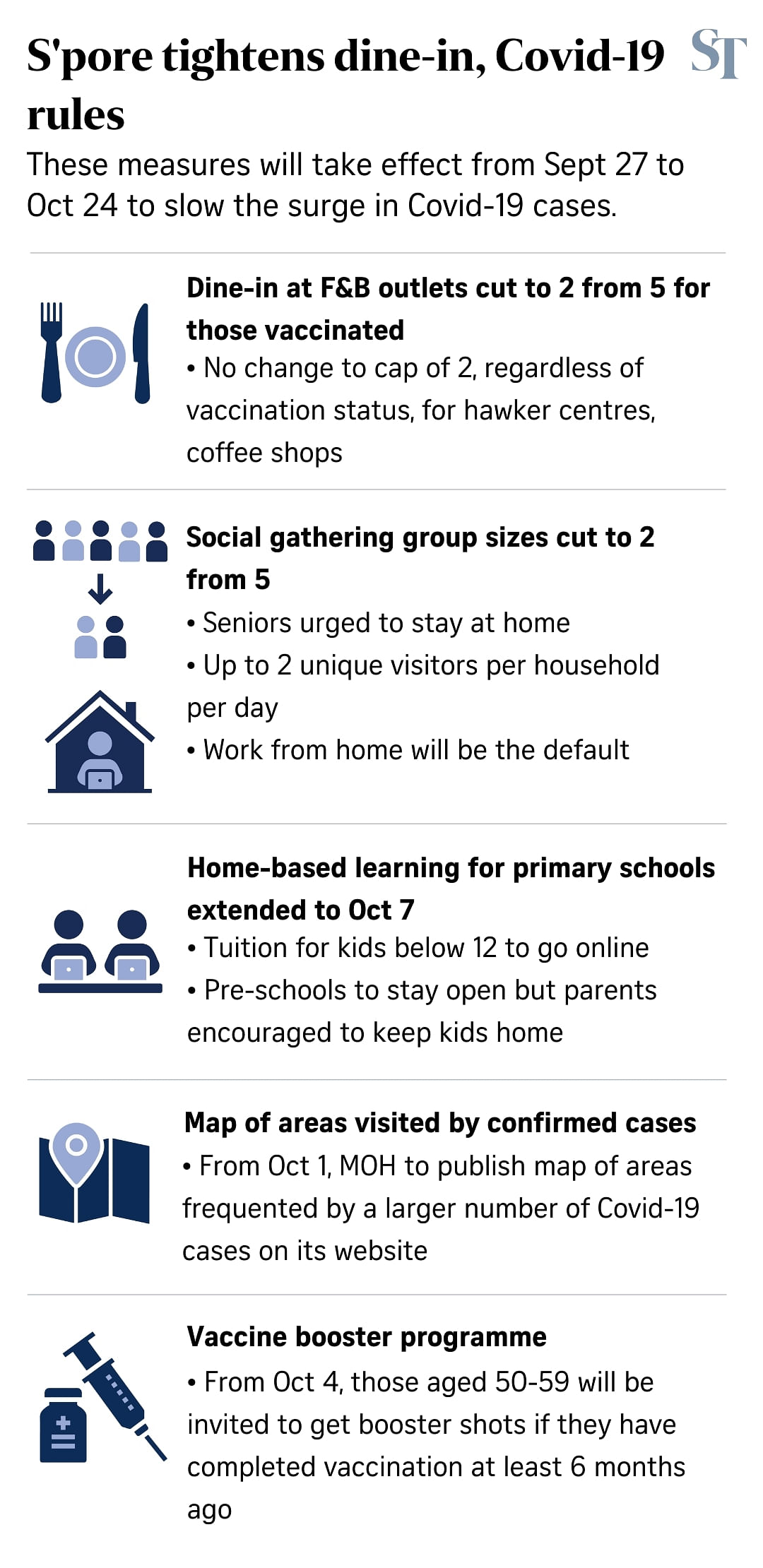'Hard for everyone to adjust to tighter measures again': Lawrence Wong says reopening to resume once healthcare system stabilises


SINGAPORE - The multi-ministry task force on Covid-19 is committed to Singapore's reopening plans and will stay the course to make Singapore a Covid-resilient nation, Finance Minister Lawrence Wong said on Friday (Sept 24).
But the latest round of restrictions is needed to ensure that the healthcare system can cope with the ongoing surge in cases, and to allow new healthcare protocols to stabilise, he said during a press conference held by the task force.
He added: "It is hard for everyone to adjust to tighter measures again, I fully understand that. So I seek your understanding, support and your forbearance.
"Once our healthcare system is stabilised, once a new healthcare capacity is in place, we will continue with our reopening plans."
Mr Wong, who co-chairs the task force, said he shared the disappointment felt by many Singaporeans at the announcement of the restrictions, which will be in place for a month, from next Monday to Oct 24.
The measures include reducing the maximum group size for social gatherings and dining-in from five to two. They will be reviewed at the two-week mark.
The minister acknowledged that the level of activity has fallen over the past few weeks following a call earlier this month for everyone in Singapore to scale back their activities and slow the transmission of Covid-19.
But the number of daily cases has quickly risen to about 1,600 despite this collective effort, Mr Wong said.
"We had all hoped that we could put these restrictions behind us, especially with our high vaccination rates and with our plans to move forward to a Covid-resilient nation, but the reality is that with the current infection trajectory, our healthcare system and our healthcare workers are facing many pressures," he said.
"That's why we had to make this very difficult decision to apply some brakes, and to slow down the rate of transmission."
However, the restrictions are more targeted this time than in previous phases of "heightened alert" measures, Mr Wong said.
"We are focused on reducing the group size so as to scale back social interactions. We have left many other parameters untouched," he added.
For instance, events involving vaccinated participants who keep their masks on will still be allowed to continue as they have not been associated with large clusters.
There is also no change to travel-related measures like the Vaccinated Travel Lane pilot schemes for Brunei and Germany, and the pilot programme to allow foreign workers living in dormitories to re-enter the community will proceed.
Mr Wong said the calibrated tightening of measures will reinforce individual efforts to scale back social interactions, so new healthcare protocols like the home recovery scheme can be stabilised.
The new scheme to allow Covid-19 patients to recover at home instead of being taken to a hospital or community care facility started on Sept 15 for vaccinated Covid-19 patients up to the age of 50 who have mild or no symptoms. It was extended to fully vaccinated patients aged between 51 and 69 on Sept 18.
About 40 per cent of infected cases are now placed on home recovery.
"We will give more breathing space for all our healthcare workers who have been working flat out throughout these past 20 months, and we will be able to augment our healthcare capacity further," Mr Wong said.
"This period will also allow more people to have their first jabs and seniors to get their boosters."
Mr Wong stressed that the measures are aimed at slowing the rate of transmission temporarily so that the healthcare system can cope, and not at bringing the number of new Covid-19 cases back to zero.
"After this wave crests, and it certainly will at some point in time, the daily numbers will come down, but they will stabilise at a new level, which is likely to be much higher than what we have been used to before," he said.
"In other words, we are not going back to a scenario of low daily cases any more. It is not going to be possible because we are moving forward to learn to live with the virus and we are continuing with our reopening plans."

This article was first published in The Straits Times. Permission required for reproduction.